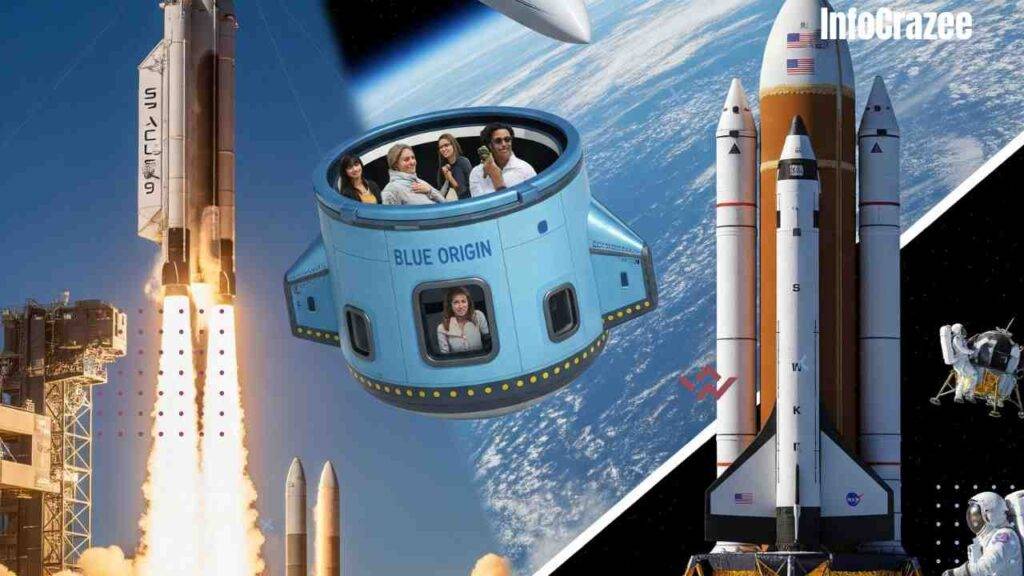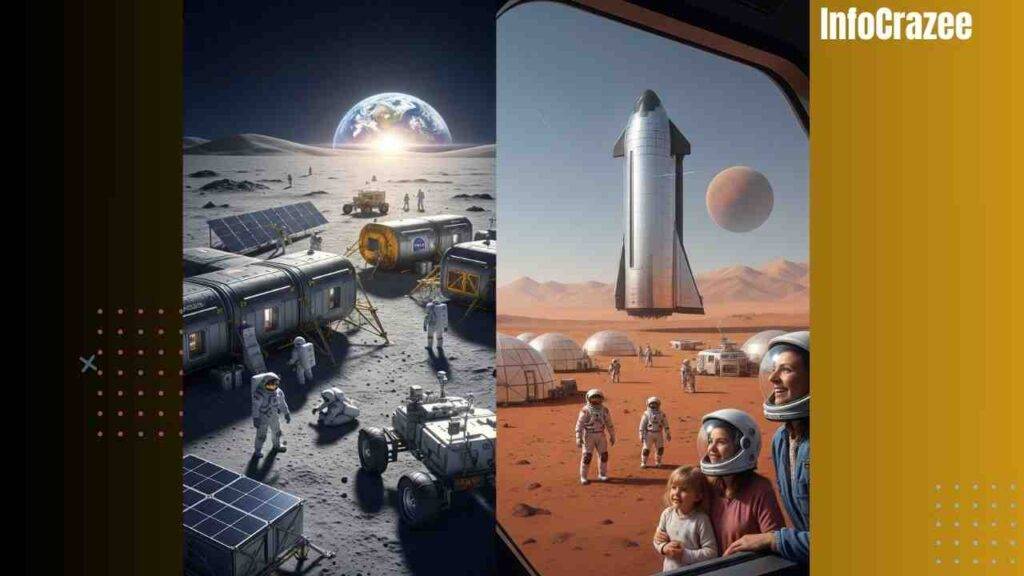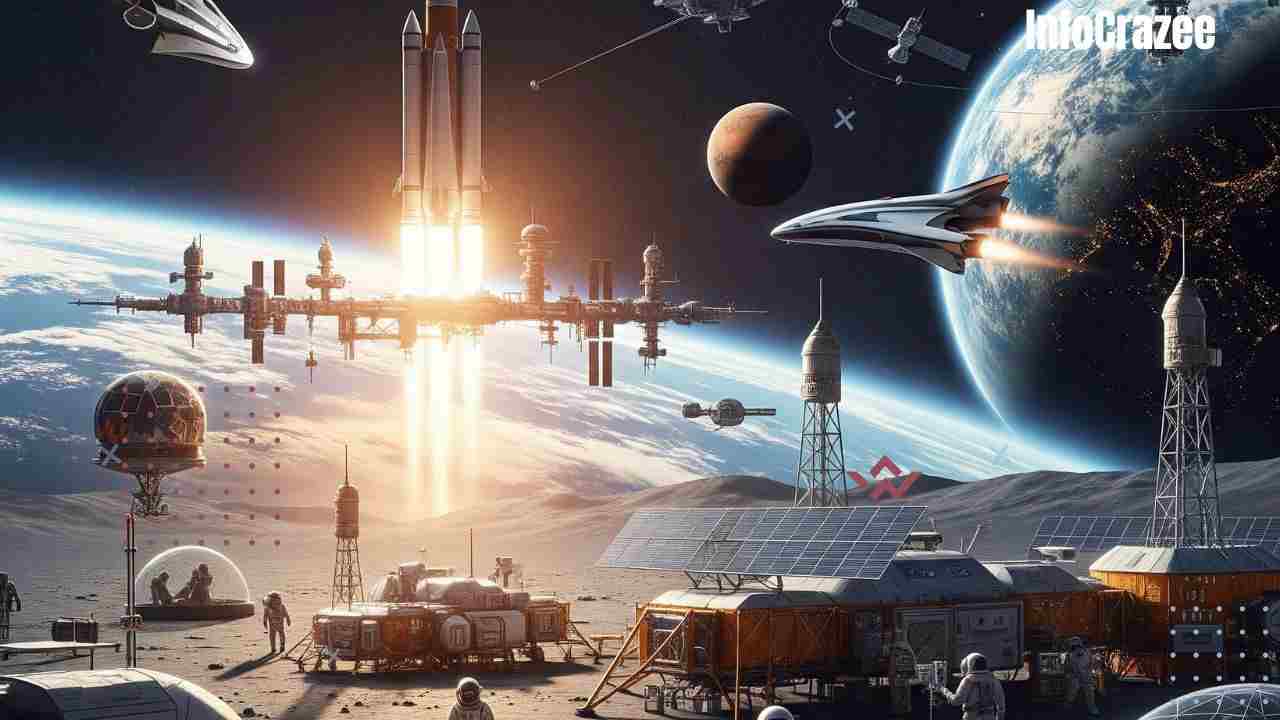Space Travel and the Future of Exploration: What’s Next Beyond Earth?
Let’s face it — space is one of those topics that sparks pure wonder. Whether it’s dreaming of walking on the Moon, living on Mars, or just watching rockets launch on YouTube, the idea of exploring beyond Earth feels like something straight out of science fiction.
But here’s the exciting part: space travel isn’t just for astronauts and billionaires anymore. Thanks to new technology, private space companies, and global interest, the future of space exploration is unfolding faster than ever — and it’s starting to affect life right here on Earth.
So, what’s really next for space travel? Let’s break it down in a way that actually makes sense — no rocket science degree required.
Why Space Travel Matters (Even If You’re Staying on Earth)
You might be wondering: “Why should I care about space travel when I’m just trying to get through my workday?”
Great question. Space exploration has already given us things like:
- GPS and satellite internet
- Weather forecasting
- Scratch-resistant glass (yes, really)
- Cameras in your phone
Plus, studying space helps us better understand our own planet — its climate, natural disasters, and future.
So even if you’re not packing your spacesuit just yet, what happens out there does affect what happens down here.
1. The New Space Race: Private Companies vs. Government Agencies
Space used to be all about NASA, Russia, and a few other space agencies. Now? Companies like SpaceX, Blue Origin, and Virgin Galactic are changing the game.

- SpaceX is working on reusable rockets and missions to Mars.
- Blue Origin wants to make space tourism a thing — like taking a quick flight beyond the atmosphere.
- NASA is still doing big things, including the upcoming Artemis mission to send humans back to the Moon.
Real moment: In 2020, SpaceX made history by launching astronauts from U.S. soil for the first time in nearly a decade — in a privately built spacecraft.
2. Moon Bases and Mars Missions: Not Just Science Fiction Anymore
One of the biggest goals in space exploration right now? Long-term living beyond Earth.

Moon Bases
NASA’s Artemis program plans to land the first woman and next man on the Moon — and eventually set up a base camp there. Why? Because it’s a perfect place to test gear and life-support systems for future Mars missions.
Mars: The Big Dream
SpaceX is laser-focused on getting humans to Mars. Elon Musk wants to build a self-sustaining city there someday. Wild? Maybe. But rockets like Starship are already being tested for the journey.
Imagine taking a vacation on Mars in the future. Okay, not next summer — but maybe in a few decades!
3. Space Tourism: Will Regular People Go to Space?
The idea of space tourism used to be a fantasy. Now, it’s real — if you’ve got the cash.
- Blue Origin and Virgin Galactic have already sent civilians to space for short rides.
- In the future, prices could drop — just like with air travel when it first started.
Cool fact: In 2021, a private crew called Inspiration4 orbited Earth without a single professional astronaut on board. And they raised money for charity while doing it!
4. Living and Working in Space: It’s Already Happening
We’ve had humans living and working on the International Space Station (ISS) for over 20 years. What’s changing now?

- Companies are planning private space stations for research and even tourism.
- Scientists are growing food in space — think space lettuce and tomatoes.
- New materials and medicines are being tested in zero gravity.
Fun story: Astronauts recently grew chili peppers on the ISS — and made tacos in space. Talk about dinner with a view!
5. Challenges Ahead: It’s Not All Easy
Exploring space sounds exciting, but it’s also really, really hard. Here’s why:
- Radiation in space is dangerous for humans.
- Long trips (like to Mars) take months and need lots of supplies.
- Space junk is a growing problem — old satellites and debris floating around Earth’s orbit.
But with new ideas, smart minds, and global teamwork, these challenges are being tackled one step at a time.
What’s Next?
Here’s a quick peek into the future of space exploration:
- A permanent base on the Moon by the 2030s
- Missions to Mars in the 2030s or 2040s
- Space hotels where people can vacation in orbit
- Better, faster spacecraft and rockets
- Growing space-based solar power to send clean energy to Earth
The future may look very different — and space might play a bigger role in our everyday lives than we think.
FAQs
1. Will normal people really be able to go to space someday?
Yes, it’s already happening — but it’s still super expensive. As technology improves and more companies get involved, prices are expected to come down, just like airplane tickets did a century ago.
2. Why are we going back to the Moon first instead of going straight to Mars?
The Moon is closer and safer for testing. It’s like a practice run for Mars. Building and testing equipment on the Moon helps us prepare for the longer, more dangerous trip to the Red Planet.
3. Is space travel bad for the environment?
Rocket launches do have environmental impacts, but companies are working on reusable rockets and cleaner fuel options. Plus, the tech developed for space often helps us live more sustainably on Earth.
Final Thoughts
At infocrazee, we love looking at the big picture — and space is about as big as it gets. The future of space travel isn’t just about astronauts and aliens; it’s about discovery, teamwork, and dreaming big.
Whether you’re following the latest Mars rover update or just curious about what’s next, one thing’s clear: we’re only getting started when it comes to exploring the universe.






